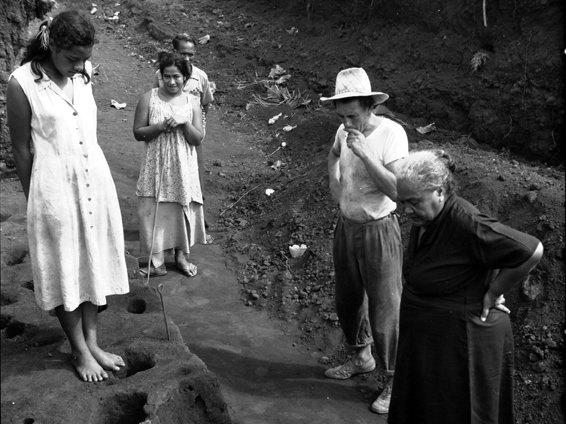Jack Golson, an Australian archaeologist who conducted important research in PNG, died in early September, just a few weeks before his 97th birthday. Jack’s great gift to Papua New Guinea was establishing that Papua New Guineans’ ancestors were among the earliest agriculturalists on earth, something that all Papua New Guineans can be proud of.
Jack grew up in Rochdale, near Manchester in England. He worked as a coal miner in England in World War 2, then studied prehistory at Cambridge after the war, graduating in 1950. He commenced doctoral studies in Britain but left to migrate to New Zealand in 1954 to take up a position as an archaeologist at Auckland University. There he conducted pioneering archaeological research in New Zealand as well as in Samoa.
Jack moved to a position at the Australian National University in Canberra in 1961 and was later appointed as the inaugural professor of prehistory in the Research School of Pacific Studies at ANU. He spent the rest of his career and ‘retirement’ at ANU.
In the late 1960s, Jack commenced archaeological research in the PNG Highlands. Arguably, his most important research was at Kuk Agricultural Research Station, near Mt Hagen, Western Highlands Province. There Jack, working with many colleagues, found that agriculture was practised in the Wahgi Valley as early as 10,000 years ago – although there is some difference of interpretation as to precise dates of the earliest agriculture there.
The research at Kuk and on Kuk material by Jack, his many colleagues and later his doctoral student Tim Denham extended from 1972 until 2003. Their research showed that food production from farming in the New Guinea highlands (as distinct from hunting and gathering) was among the earliest on the planet. Agriculture commenced in the ‘Fertile Crescent’ of SW Asia about 1000 years earlier, so its independent discovery in New Guinea was not too long after that.
Jack was recognised many times for his contribution to archaeology and to education. Honours included an honorary doctorate from UPNG in 1992; an Officer of the Order of Australia in 1997; an Australian Centenary Medal in 2001; a Life Member of the Australian Archaeological Association in 2002; a Fellow of the Australian Academy of the Humanities in 1975; and, together with his wife Clare, the World Archaeological Congress Inaugural Lifetime Achievement Award in 2009.
He was President of the World Archaeological Congress from 1990 to 1994 and a strong supporter of that body since its inception.
Jack was a humble man, most unpretentious, gracious and generous. In short, a really decent person. He always signed his correspondence simply as Jack, no mention of academic or professional honours. He loved cricket and attended the New Year test match in Sydney every year until declining health prevented this. He was fond of a few beers and social events, especially if the talk was about PNG or prehistory.
An important legacy of Jack Golson and his colleagues was the recognition of Kuk as a UNESCO World Heritage Site in 2008. This is a major achievement as it provided international recognition for the Kuk archaeological site. As well as being important for PNG, recognition of Kuk as a World Heritage Site indicated its significance for the global community, particularly those interested in the history of humans in the deep past.
The results of the research at Kuk have been published in the book ‘Ten Thousand Years of Cultivation at Kuk Swamp in the Highlands of Papua New Guinea’, edited by Jack Golson, Tim Denham, Philip Hughes, Pamela Swadling and John Muke (ANU Press, Canberra, 2017). The book can be downloaded free of charge.
Vale Jack (13 September 1926 to 2 September 2023).
This article was first published in the Papua New Guinea Post-Courier with the title ‘Uncovering early agriculture in PNG: Jack Golson’s great gift’.


Leave a Comment